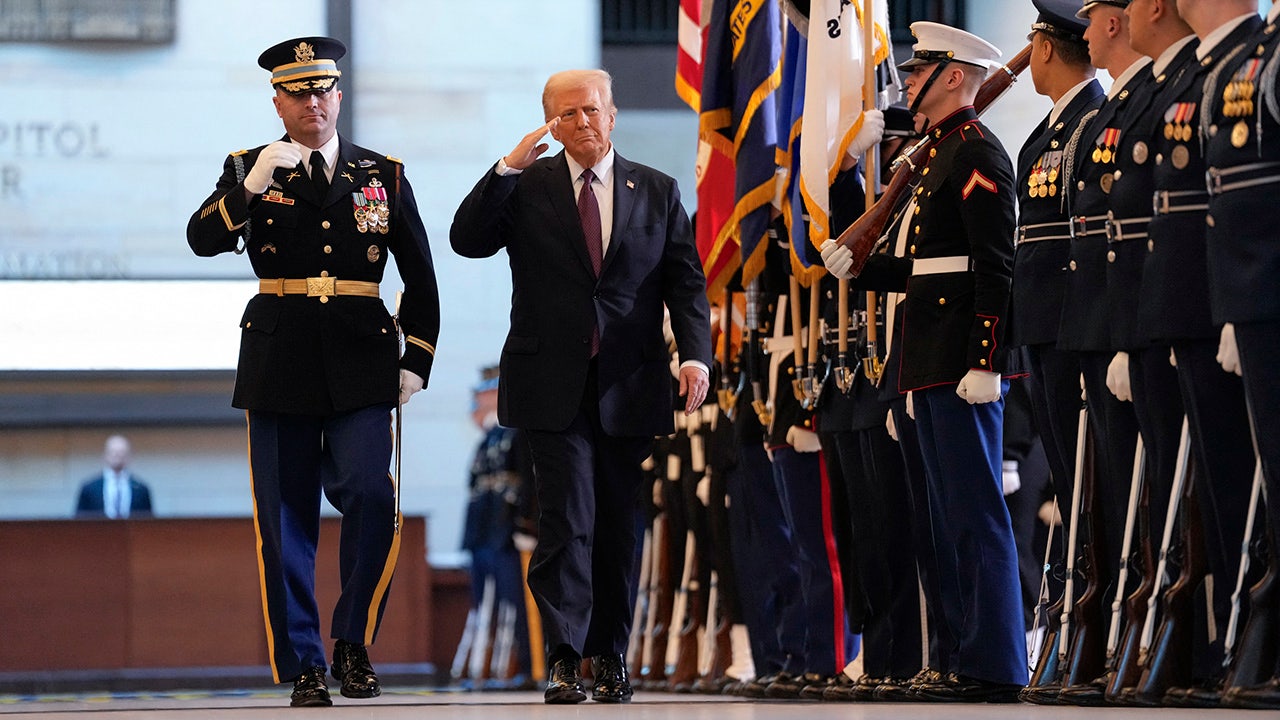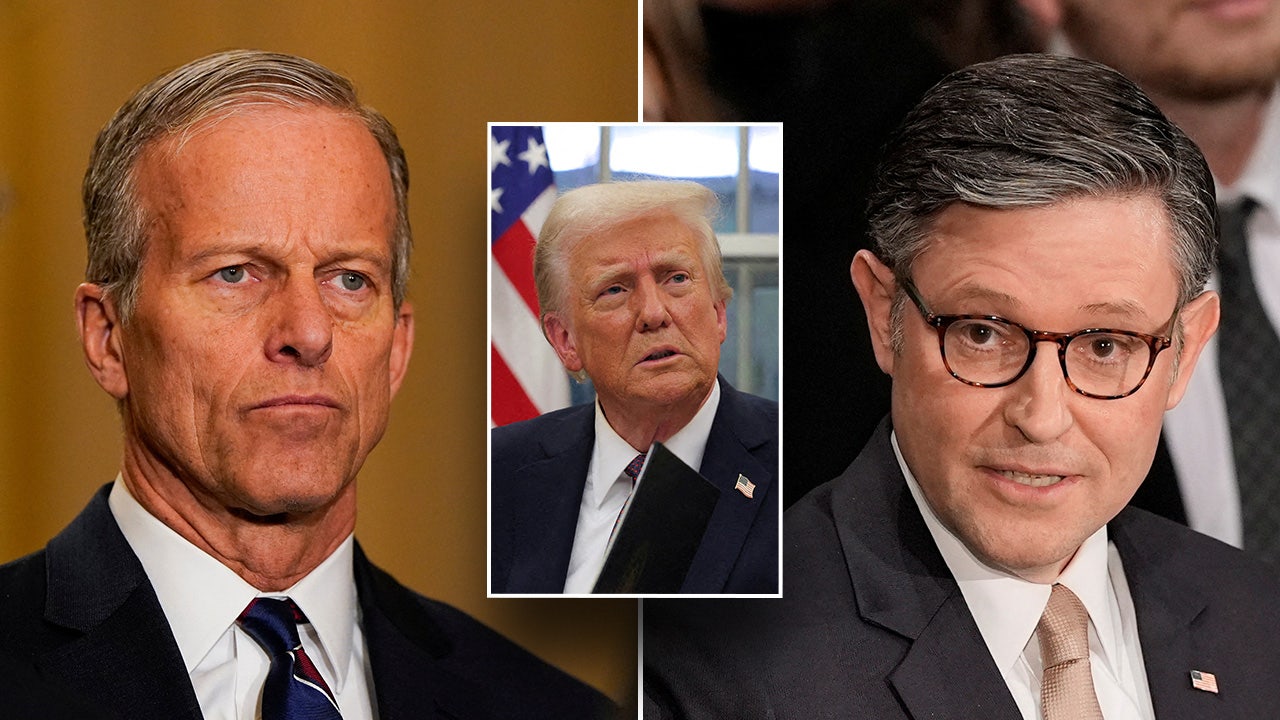To celebrate the latest Trek feature film, Section 31, here's our highly illogical, entirely emotional list of the franchise's entire slate, from worst to best

Film. The final frontier. These are the movie voyages of the starship Enterprise — well, mostly. With this week’s debut of Star Trek: Section 31, the venerable sci-fi franchise finds itself exploring new territory altogether: the straight-to-streaming film. In this case, it’s actually the end result of a long, complicated development process where Section 31 — spinning off a Star Trek: Discovery character that Oscar winner Michelle Yeoh last played in late 2020 — was originally going to be an ongoing show, and now will be a Paramount+ exclusive-premiere movie. It’s the first of a potential series of Trek films made for the streamer, though Trek almost certainly still has a future on the big screen, whether or not plans to reunite the cast of the Chris Pine films comes to fruition.
Inspired by the arrival of Section 31, we’ve decided to rank all 14 Star Trek movies to date, this latest included, from worst to best. The Star Trek television shows are by their very nature uneven, so it’s perhaps not surprising that the films, too, have a wide range in quality, even within the various individual film series featuring William Shatner’s original crew, the gang from Star Trek: The Next Generation, or the Pine reboot. There’s one spectacular film, a number of very good ones, several mediocre ones, and a few godawful ones. They also cover a relatively wide range of types of Star Trek stories, like straightforward action-adventure and issue-oriented sci-fi, and operate across many levels of scale, from glorified TV episodes to big-budget epics.
We begin with a movie that asks the immortal question, “What does God need with starship?”
-
Star Trek V: The Final Frontier (1989)
 Image Credit: Paramount Pictures/Everett Collection
Image Credit: Paramount Pictures/Everett Collection
From one of the franchise’s most beloved films came one of its most reviled. The surprise success of Star Trek IV: The Voyage Home, directed by its co-star Leonard Nimoy, and featuring much more comedy than the previous films, led to two things: 1) William Shatner insisting that he get his own chance to direct; and 2) Shatner trying to out-funny The Voyage Home. The result — including a plot that introduced Spock’s long-lost half-brother Sybok (Laurence Luckinbill) hijacking the Enterprise in order to meet a creature he believes to be God — is a calamity on every level. It repeatedly sells out the characters in search of laughs that never come — like Scotty bragging that he knows this ship like the back of his hand, right before he knocks himself out walking into an overhead beam — and isn’t any better at the serious stuff. The next couple of films on this list have certain elements that are worse than anything here, but they also do at least a few things well, whereas there’s almost nothing worth celebrating in Final Frontier. (We make a slight exception of the opening sequence where Kirk, Spock, and McCoy banter around a campfire, but even that gets demerits because their mini vacation is just a shameless excuse for Shatner to film himself rock climbing.)
-
Star Trek Into Darkness (2013)
 Image Credit: Zade Rosenthal/Paramount/Everett Collection
Image Credit: Zade Rosenthal/Paramount/Everett Collection
The cynicism and mystery-box nonsense of this film — a Wrath of Khan remake that J.J. Abrams and company spent the run-up to the premiere denying was anything of the sort — is so aggravating, and so antithetical to the spirit of Star Trek, that it’s awfully tempting to put it at the bottom of the list. But Abrams remains a vastly more competent director than Bill Shatner, and some of the action set pieces alone easily elevate this above Final Frontier.
-
Star Trek: Nemesis (2002)
 Image Credit: ©Paramount/Everett Collection
Image Credit: ©Paramount/Everett Collection
The films about Jean-Luc Picard and the rest of the Star Trek: The Next Generation crew went out with a whimper. Nemesis has some interesting ideas, including exploring the culture of the Romulans (who were usually treated as second-class villains compared to the Klingons), and forcing both Picard and Data to confront younger alternate versions of themselves. But the execution — including giving a young Tom Hardy a large prosthetic nose to play Picard’s evil clone Shinzon (see above left) — is silly, and the tone always feels off. And Data’s death feels so abrupt and random that, many years later, Star Trek: Picard had to undo it twice (first by giving him a more dramatic and dignified passing, then by bringing him back).
-
Star Trek: Section 31 (2025)
 Image Credit: Jan Thijs/Paramount+
Image Credit: Jan Thijs/Paramount+
After a very long wait, Section 31 — in which Yeoh’s Philippa Georgiou goes on a mission for Starfleet’s unofficial black-ops division — is… fine? It ignores the thorny moral questions that were a key part of Section 31 when the group was introduced on Star Trek: Deep Space Nine in favor of a watered-down Mission: Impossible-style adventure, teaming Georgiou with various colorful rogues, including Sam Richardson as a shapeshifter. The fight scenes don’t make particularly great use of one of the greatest action stars of all time, but the movie’s got energy, some decent supporting performances, and does a few fun things on the margins of the Star Trek universe. The movies below it are outright bad. This is at worst harmless.
-
Star Trek: Insurrection (1998)
 Image Credit: Paramount/Everett Collection
Image Credit: Paramount/Everett Collection
After the first two Next Generation films tried to operate on a big scale, with mixed results, Insurrection took a more modest approach, with a story that’s essentially a longer and more expensive version of a traditional TNG Mission of the Week episode. But the plot — the crew objects to forcibly relocating the population of an idyllic planet with Fountain of Youth capabilities — would have likely been forgettable even on TV. There are some fun moments here and there, like Picard and Worf singing part of H.M.S. Pinafore to stop an out-of-control Data, but its position on the list speaks more to how bad the bottom three films are than to its own merits.
-
Star Trek: Generations (1994)
 Image Credit: Paramount Pictures/Everett Collection
Image Credit: Paramount Pictures/Everett Collection
It’s shocking in hindsight how badly Generations fumbles the chance to put Jean-Luc Picard and James T. Kirk in the same movie. Admittedly, the team-up was undercut a bit by the fact that Next Generation had already done episodes featuring Spock, Scotty, and (in a brief but memorable cameo in the series pilot) Bones McCoy. But the execution of it is still a convoluted mess that seems to misunderstand the basic essence of the two characters. Both captains wind up stranded in the Nexus, a mysterious celestial phenomena that grants its every occupant an eternal paradise matched to their heart’s greatest desire. So for Picard, that perfect afterlife is… a Dickensian Christmas with the kind of large family he never showed much interest in? And for Kirk, who was never happier in life than whenever he was sitting in the captain’s chair on the Enterprise, happily-ever-after is… a horse farm? And, on top of that, the Nexus is supposed to hold such a powerful sway over anyone in it that the film’s villain (played by Malcolm McDowell) is prepared to commit genocide just to get back there, yet Picard and Kirk are able to shake off its effects with barely an effort at all. Even all of that might be forgivable if Generations had actually had some fun with the idea of the two captains, with their contrasting temperaments and command styles, finding a way to work together. But there’s basically none of that in the film’s climax. Oh, and then James Tiberius Kirk dies falling down a hill, which seems a very underwhelming ending for such a legendary hero. That said, Shatner plays the actual moment of Kirk’s death (“Oh, my…”) beautifully, there’s an infectious level of energy at first from the TNG actors getting to follow their predecessors onto the big screen, and Data finally using his emotion chip feels like the kind of momentous character turn worth saving for a film. A big disappointment, but not without certain charms.
-
Star Trek: The Motion Picture (1979)
 Image Credit: ©Paramount/Courtesy Everett Col
Image Credit: ©Paramount/Courtesy Everett Col
Easily the most aptly-titled of any film in the series, since practically every frame of it screams, “Look at how much of a movie this is!” Robert Wise, director of two different Best Picture Oscar winners (West Side Story and The Sound of Music), was determined to take the relatively cheap small-screen property and make it look and feel huge and cinematic. This leads to some sequences that can play as either awe-inspiring or self-indulgent, depending on your mood, like a nearly five-minute sequence of Scotty taking Kirk on a flyby around the refurbished Enterprise, or a 2001-esque travelogue through the mysterious cosmic entity V’ger. Star Trek creator Gene Roddenberry would be forced out of creative control over later films due to this one’s box office performance relative to its huge budget, but his script sets up several key character threads that would continue throughout the later, more beloved films produced by Harve Bennett. This includes Kirk regretting his promotion to admiral and forcing his way back into the Enterprise captain’s chair, and Spock finally coming to accept that a traditional Vulcan life of pure logic is not what he actually wants.
-
Star Trek Beyond (2016)
 Image Credit: Kimberley French/Paramount/Everett Collection
Image Credit: Kimberley French/Paramount/Everett Collection
Like Insurrection, this is essentially a souped-up TV episode. But it’s executed much better, and also feels somewhat novel, since the Chris Pine crew never actually had a television show to graduate from. Like the two J.J. Abrams films, Beyond (directed by Justin Lin) emphasizes action, but in stranding the crew on a hostile alien planet, it also makes stronger use of the modern ensemble than either of its predecessors, and has a strong villain with an interesting backstory in Idris Elba’s Krall. It’s a shame that just as the rebooted films seemed to have finally found a sustainable formula, Paramount stopped making them; hopefully, the fourth in the series comes to fruition.
-
Star Trek III: The Search for Spock (1984)
 Image Credit: John Shannon/Paramount/Everett Collection
Image Credit: John Shannon/Paramount/Everett Collection
The middle chapter of what’s essentially a trilogy within the original crew’s films, Search for Spock is given the thankless task of finding a way to undo Spock’s noble death at the end of Wrath of Khan. It doesn’t always get there gracefully, and the more modest budget of the post-The Motion Picture films is most palpable here, with lots of material set on 23rd century Earth and on the dying Genesis planet looking pretty threadbare. (Most of Wrath of Khan took place either on the Enterprise or on another starship that was just a redressed version of the Enterprise set, so the relative cheapness was more easily disguised.) That said, Search for Spock is the best showcase for the original ensemble, giving spotlight moments to oft-underserved characters like Uhura and Sulu. It has the shock of Kirk blowing up the Enterprise, back before the Next Generation and Chris Pine films kept destroying the ship to diminished impact each time. Christopher Lloyd’s Commander Kruge is an excellent villain, in the first significant spotlight for the revamped version of the Klingons introduced briefly in The Motion Picture. And even though the murder of Kirk’s estranged son David casts much more of a pall than intended over the film’s final scenes, the scene where Kirk finds out about it gives Shatner one of his best and most powerful acting moments in his entire run as Kirk.
-
Star Trek (2009)
 Image Credit: Paramount/Everett Collection
Image Credit: Paramount/Everett Collection
J.J. Abrams has problems ending stories, but he’s awfully good at starting them. This one — the launch of what came to be called “the Kelvin-verse,” because the films’ timeline deviates from the Shatner-Nimoy one with the destruction of the U.S.S. Kelvin and the heroic sacrifice of Kirk’s father George (a young Chris Hemsworth) — represents all the things Abrams does well at the beginnings of projects. The new actors are all impeccably cast, but especially Pine as Kirk and Karl Urban as McCoy. And some of them, like Zoe Saldaña as Uhura, get better material in one film than their predecessors did over decades. Abrams takes the franchise in more of an action-oriented direction than previous films had, but the action is very good, and the characters all feel like the ones we know and love, despite the long shadow cast by the original actors. (Even Zachary Quinto doesn’t suffer for sharing a movie — and, eventually, a scene — with Nimoy as an older Spock from the original timeline.) It’s not nearly as deep as some others on this list (including several ranked below it), but it does what it’s aiming for at a very high level.
-
Star Trek IV: The Voyage Home (1986)
 Image Credit: Paramount/Everett Collection
Image Credit: Paramount/Everett Collection
William Shatner’s promotional tour for The Voyage Home included hosting Saturday Night Live, where in one sketch he played himself telling a convention hall full of Star Trek obsessives to get a life. But at a moment when Trekkies had become an easy pop-culture punching bag, The Voyage Home turned out to be beloved by longtime fans and casuals alike. It’s the best film in the series to show to someone who doesn’t love Star Trek, but it works just as well for the people who can tell a Dilithium Crystal apart from a Jefferies tube. Inspired by the “Save the Whales” movement of the Seventies and Eighties, the fourth film in the series finds 23rd century Earth under siege from an alien probe that seems to be speaking in whale song. With whales extinct in the future, the crew (still flying the Klingon ship they commandeered at the end of Search for Spock) travels back in time to present-day San Francisco in search of a pair of humpback whales to save the day. What follows is a delightful culture clash comedy that takes advantage of how well the actors played off each other by that point — and how well director Nimoy knew his co-stars’ strengths — while for the most part avoiding making them look like idiots the way Final Frontier does. Shatner and Nimoy in particular make such a smashing comedy duo, it’s a shame nobody thought to build a non-Trek buddy film around them afterwards. It’s a big crowd pleaser, and the use of science fiction to explore a hot-button issue from the world of the audience in many ways makes this the film that’s perhaps the truest to the experience of watching the TV show 20 years earlier.
-
Star Trek: First Contact (1996)
 Image Credit: Paramount/Everett Collection
Image Credit: Paramount/Everett Collection
By far the peak of the TNG films. When Picard’s arch-nemeses, the cyborg hive-mind race the Borg, travel back in time to prevent humanity’s first contact with alien life, Jean-Luc has to reckon with his greatest trauma, while Riker, Troi, and Geordi have to make sure that drunken, cynical engineer Zefrem Cochrane (James Cromwell) completes the historic warp-drive voyage that will ensure the birth of the Federation. All of the supporting players get great moments — like an unstable Picard accusing Worf of cowardice, prompting the Klingon warrior to furiously respond, “If you were any other man, I would kill you where you stand” — but this is obviously Sir Patrick Stewart’s show, and he’s as superb as you would expect. (He’s helped by being given two excellent new foils: Alfre Woodard as a 21st century human who will speak to Picard more bluntly than his crew, and Alice Krige as the icy Borg Queen.) The other TNG films struggled to recapture what had made the TV show work so well, but this one has all the series’ elements on impressive display.
-
Star Trek VI: The Undiscovered Country (1991)
 Image Credit: ©Paramount/Everett Collection
Image Credit: ©Paramount/Everett Collection
Nicholas Meyer had already saved the film franchise once before with The Wrath of Khan, which gave Paramount confidence in making more films after the financial mess of The Motion Picture. He was asked to come to the rescue one more time after the disaster of The Final Frontier, bringing maturity and basic competence back into the mix, in a story meant to be a farewell to the entire original crew. Paramount later had cold feet about doing a TNG-only film, which is why Shatner, Walter Koenig, and James Doohan are in Generations. And Nimoy would cameo in the first two Kelvin films. But that takes nothing away from what a poignant, fun, thematically perfect sendoff Undiscovered Country is. The Klingons had been created as a 23rd-century metaphor for the Soviet Union. So with the fall of the Berlin Wall, Meyer decided to write a film dealing with Jim Kirk as a Cold War veteran at a loss for how to move through a world where the two sides are making peace. To that idea, the film adds a locked-room murder mystery, a prison break, a wonderfully over-the-top Christopher Plummer as a Shakespeare-quoting Klingon, Sulu finally getting to captain the Excelsior (a subplot that was cut from several previous films), and an excellent Kim Cattrall as Spock’s latest protégé, the deliberately very Saavik-esque Lt. Valeris. It’s not quite as powerful as the previous film Meyer directed, but it’s an excellent example of all the things that made Star Trek into Star Trek.
-
Star Trek II: The Wrath of Khan (1982)
 Image Credit: ©Paramount/Everett Collection
Image Credit: ©Paramount/Everett Collection
Behold, the one entry in the series that can be considered a great film, period, rather than a great Star Trek film. After the solemn, bloated The Motion Picture, writer-producer Harve Bennett and writer-director Nicholas Meyer stripped things down for a simpler, pulpier story that brought back Ricardo Montalban as genetically-engineered despot Khan Noonian Singh, a villain from a memorable episode of the Sixties show. Legend has it that Meyer worked around Shatner’s trademark hamminess by filming take after take of every Kirk scene, until his leading man was too tired to do his usual schtick. The result is easily the best, most natural, and most poignant performance of Shatner’s career, and makes an excellent contrast with Montalban’s bare-chested, scenery-devouring work as Khan. The film is a poignant meditation on aging, presented in two different ways for our heroes: Spock has finally made peace with his dual heritage, and takes pleasure mentoring cadets like Lt. Saavik (a young Kirstie Alley), while Kirk feels old, useless, and full of regret, especially when the mission not only brings him into conflict with an old foe in Khan, but with the son he didn’t raise in David. It’s also a crackerjack suspense film, with the initial battle between the Enterprise and Khan’s Reliant still the single most thrilling sequence in any Trek film. And that’s before we even get to the absolute tearjerker of Kirk and a dying Spock saying goodbye to each other from opposite sides of plexiglass — a scene so powerful, it doesn’t matter if you go into it now knowing that Spock will be revived in the next film, and that Nimoy would still be playing the role on occasion more than 30 years later. Wrath of Khan sets a very high standard that the films have been chasing ever since — quite literally, in the case of Into Darkness — without ever quite succeeding.

 2 hours ago
1
2 hours ago
1
















.png)

.png)
.png)
.png)













 English (US) ·
English (US) ·  Hindi (IN) ·
Hindi (IN) ·